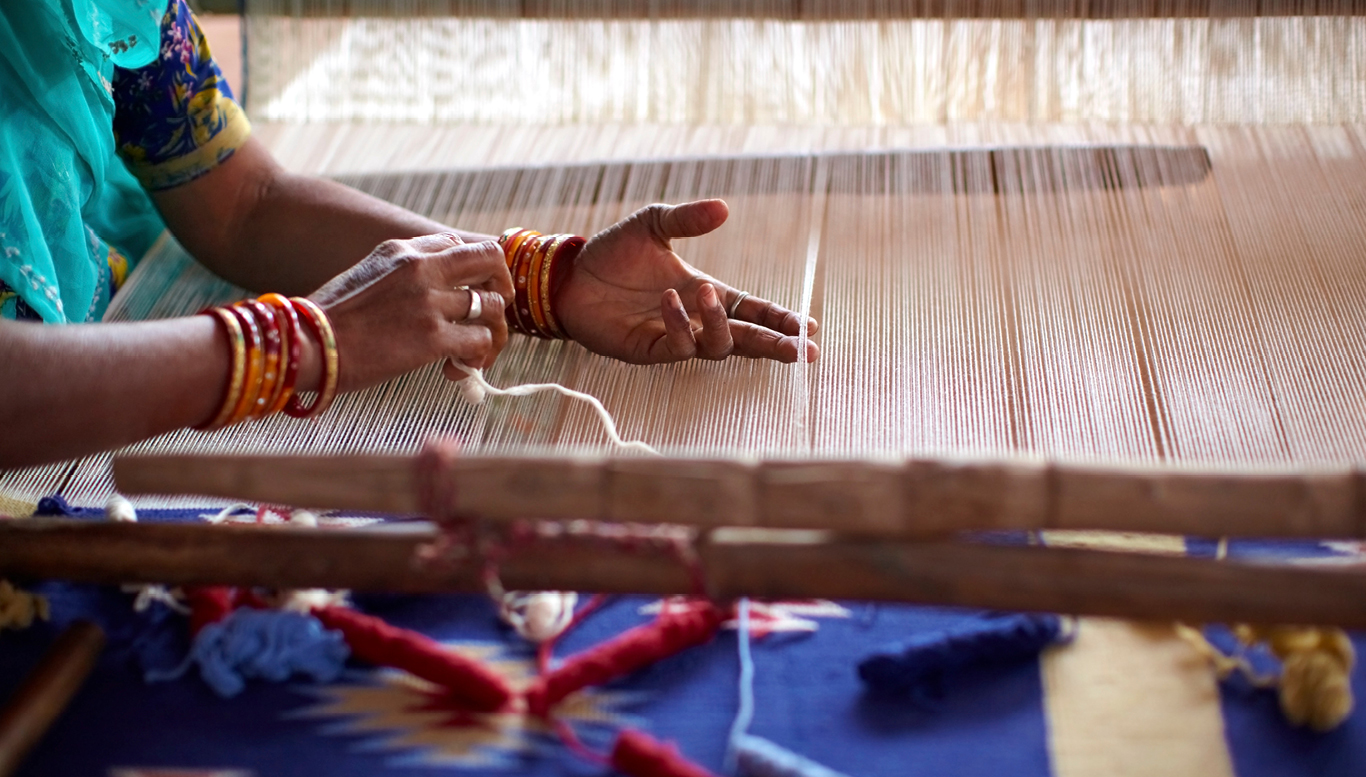Rural India Offers Great Business Opportunities

The poor rural areas of India may offer excellent business opportunities if you have the courage to seek them. The Finnish company Tikau has created a partnership network in India, partly with Finnpartnership’s support, and offers help in this.
Tikau designs and imports handmade home décor products to Finland and, over the last few years, has created a collaboration network with craftsmen and women in rural India. The company operates in five states in India and is seeking individual families, communities of women and craftspeople and local civic organisations to partner and design products with. “We are pioneers in creating a new kind of operations model that combines business and aid,” Tikau’s founder Taina Snellman says.
Finnpartnership has granted Tikau Business Partnership Support for identifying and training new partners and establishing a local entity in India. “This support has been vital for us, because identifying potential partners takes a great deal of effort and money in our operations model. Starting business operations is also slower and more difficult than in a normal operations model,” Snellman explains.
Everyone benefits from the collaboration
Taina Snellman has studied the well-being of workers within the clothing sector in India and consulted other businesses in matters concerning procurement. For the past 11 years, she has seen how even small things can improve the life of Indian villagers. Snellman believes that Finnish companies could play an important role in this. At the same time, it would open up entirely new business opportunities for the companies themselves.
Snellman proposes that Tikau and Tikau Share ry, which implements development projects in India, could function as a platform for companies who want to, for example, test the applicability of their products in Indian villages. “This is a unique opportunity to reach remote villages that have no large companies or charities in them yet. I encourage companies that are considering India as a market to contact us.” Snellman believes that there could be a market in rural India for products and services in, for example, the areas of clean water and sanitation, renewable energy and applications for mobile devices. “It’s well worth doing things together and combining forces in comprehensive interdisciplinary projects.”
Business supporting development
The Base of the Pyramid (BoP) business model involves seeking solutions for reducing poverty and other social problems through companies’ innovative business activities. For the company engaging in this kind of business, it is not charity but financially profitable trade that improves conditions for poor people and takes them on as equal business partners. However, the threshold for developing business activities that are completely different to customary business ideas for the BoP market is still high. Many companies think that families living in poverty can’t afford to invest or they don’t have the necessary competence to act as a business partner. But a poor community as a whole may be an interesting market or partner.
Tikau’s operating principle in the BoP market is to co-create products with partners that will sell in Europe. This will improve employment both in India and Finland. Snellman emphasises that it is not easy to succeed in the BoP market. Instead of quick profits, the business activities must be founded on long-term commitment. “One of the features of our operations model is that we visit the villages regularly to coordinate our activities with our local partners. Our physical presence is vital.”
Tikau expands to new areas
Snellman says that Tikau’s operations model has taken quite some time to develop. Over the years, there have been some mistakes. She admits that it would be easier to order the textiles from a large factory in a city. Nevertheless Tikau intends to continue collaborating with small operators in rural India. “We have now refined this model and made it so functional that it can be copied and imported into new areas in India.” Product manufacture currently provides employment for about 110 craftspeople in India, some of them full time and others part time.
Alongside its business activities, Tikau engages in development projects with its parallel organisation, Tikau Share, to benefit the communities of craftspeople. This includes, for example, crafts training in the villages. For one village, there is a building in the pipeline where villagers can gather.“These kinds of activities, too, create conditions for better and more efficient business operations in the future. Hence the project is more than development aid. Our target is to bring together ideas, skills and expertise from different fields and in this way to create innovative ways of meeting various challenges,” Snellman says. To reach its targets, Tikau has developed the Design Helps concept that combines innovative design, sustainable employment and the empowering of underprivileged communities.
Snellman expects Tikau’s operations to expand in the future. The company has its own outlet in the district of Ullanlinna in Helsinki and a retail network mainly consisting of design shops in Finland and abroad. Tikau is now seeking opportunities to increase its sales globally.
Share on social media


